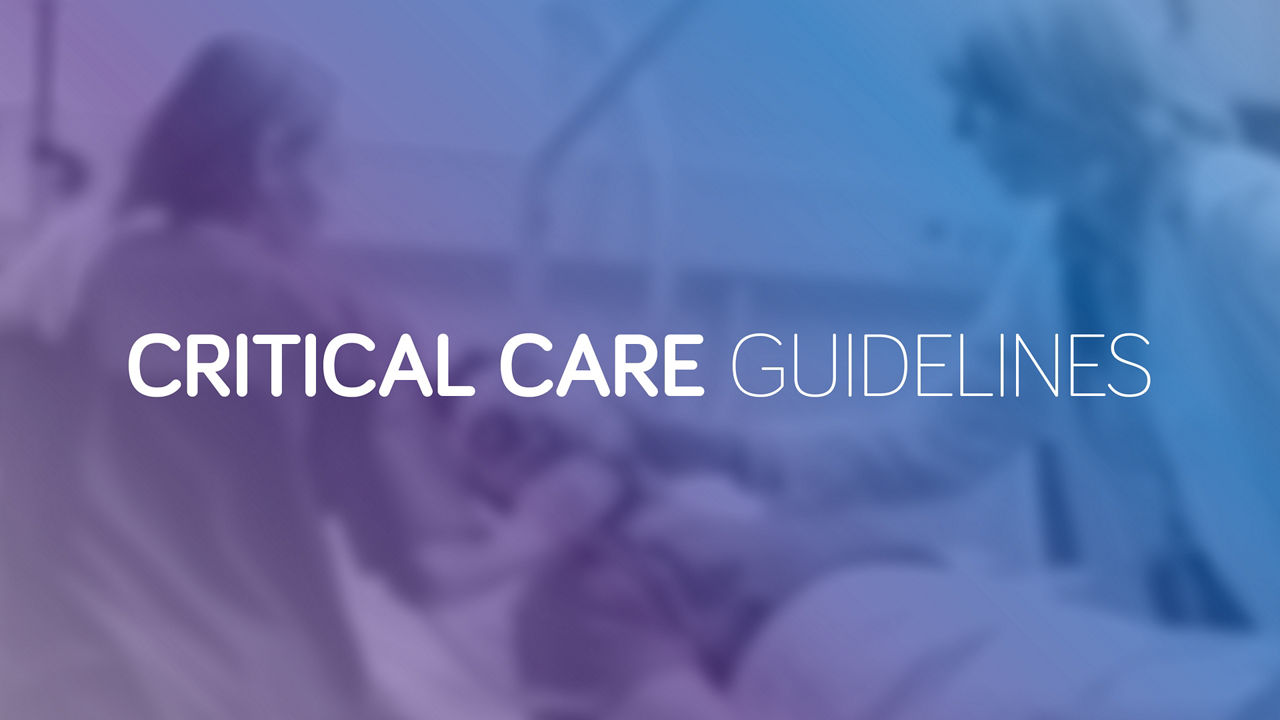This video content originates from the Nutricia Global Virtual Conference held on the 21st of May 2021
Increased protein supply is associated with increased survival1,2
Loss of muscle mass and malnutrition is common among critically ill patients3. Approximately 50% will not meet their nutritional targets while in the intensive care unit (ICU)4.
Malnutrition in this setting can often be the result of increased catabolism and patients increased nutritional needs. Malnourished patients may be susceptible to complications such as prolonged respiratory dysfunction and increased mortality5.
Nutritional intervention can have a major impact on survival and recovery for these patients5,6. Protein is the most important macronutrient in this phase, contributing to the conservation of lean body mass, and positively impacting both mortality and mobility5,6. Adequate supply of protein is thus fundamental in the treatment of critically ill patients.
Early administration of high protein enteral nutrition is important
An adequate supply of protein is thus fundamental in the treatment of critically ill patients. Protein-rich enteral nutrition should be given to all critically ill patients who are not expected to resume normal diet within 3 days6-8. Initiation should be within the first 24-48 hours after admission6,8 as an early start of protein-rich enteral nutritional therapy has been shown to:
- reduce length of stay, occurrence of infectious complications and spontaneous wounds
- prevent muscle loss
- reduce length of stay
- reduce occurrence of infectious complications and spontaneous wounds9.
Enteral feeding products should provide a well-tolerated solution with a protein supply that fully meets international guidelines without risking over feeding calories, helping patients reach protein and energy targets early.

Introducing Nutrison Protein Intense
The first and only whole protein tube feed with a high protein level that fully meets international critical care guidelines6-8,10-12.
Download critical care nutritional guidelines
Download an overview of the International Critical Care Guidelines and recommendations for route of feeding, energy target, protein target and type.

News in the value of Nutritional Management in ICU
Watch the video and learn from Prof Arthur van Zanten on how to reach your patients' protein recommendations in clinical practice.
SCCM/ASPEN
Guidelines for the Provision and Assessment of Nutrition Support Therapy in the Adult Critically Ill Patient 20166
ESPEN
European Society for Parenteral and Enteral Nutrition guidelines on clinical nutrition in the intensive care unit 20068
CCPGs
Canadian Critical Care Practice Guidelines 201310 update on recommendations and strategies
Nutrition therapy
Nutrition therapy for critically ill patients across the Asia-Pacific and Middle East regions 201811
- Weijs PJM, Looijaard W, Beishuizen A, et al. Critical Care. 2014;18:701-10.
- Allingstrup MJ, Esmailzadeh N, Knudsen W, et al. Clinical Nutrition. 2012;31:462-8.
- Wischmeyer PE. Current Opinion in Critical Care. 2016;22:279-84.
- Heyland DK, Cahill NE, Dhaliwal R, et al. Journal of Parenteral and Enteral Nutrition. 2010;34:675-84.
- Heyland DK, Weijs PJM, Coss-Bu JA, et al. Nutrition in Clinical Practice. 2017;32:58S-71S.
- McClave SA, Taylor BE, Martindale RG, et al. Journal of Parenteral and Enteral Nutrition. 2016;40:159-211.
- Singer P, Blaser AR, Berger MM, et al. Clinical Nutrition. 2019;38:48-79.
- Kreymann KG, Berger MM, Deutz NEP, et al. Clinical Nutrition. 2006;25:210–23.
- Demling RH. ePlasty. 2009;9:65-94.
- Dhaliwal R, Cahill N, Lemieux M, et al. Nutrition in Clinical Practice. 2014;29:29-43.
- Sioson MS, Martindale R, Abayadeera A, et al. Clinical Nutrition ESPEN. 2018;24:156-64.
- Hurt RT, McClave SA, Martindale RG, et al. Nutrition in Clinical Practice. 2017;32:142S–151S.
Are you a healthcare professional or (carer of) a diagnosed patient?
The product information for this area of specialization is intended for healthcare professionals or (carers of) diagnosed patients only, as these products are for use under healthcare professional supervision.
Please click ‘Yes’ if you are a healthcare professional or (carer of) a diagnosed patient, or ‘No’ to be taken to a full list of our products.
The information on this page is intended for healthcare professionals only.
If you aren't a healthcare professional, you can visit the page with general information, by clicking 'I'm not a healthcare professional' below.




